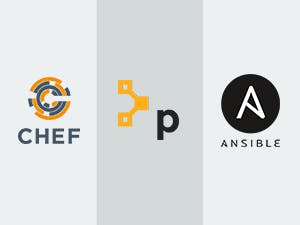Today, many automation testing tool options are available. It makes choosing the right-fit tool for your business requirement a daunting task.
This white paper will help you navigate the world of software testing tools and make informed decisions for your team. It will help you make informed decisions about software testing tools, saving time and resources. Our guide covers:
- Overview of automation testing tools
- Evaluation of popular automation testing tools in the market
- Features and capabilities of each tool
- Recommendations based on specific needs and requirements
This guide provides an in-depth analysis of automation testing tools, including the latest trends and innovations. By this report’s end, you will have a clear understanding of the different software testing tools available and be able to choose the best tool for your needs.
Overview of the software testing tools compared in this report
This report provides an overview of different types of software testing tools and compares the top ten most popular tools in the market. The tools have been evaluated based on their features and capabilities, such as automation capabilities, ease of use, scalability, cost, and integration with other tools.
We provide a comprehensive evaluation of each tool, including its pros and cons, to help you decide which tool to choose for your needs.
Software testing tools compared in this report:
- Selenium: Selenium is an open-source test automation tool for web applications. It supports a wide range of programming languages and can be used to test applications on different platforms and browsers.
- Cypress: Cypress is a test automation tool for web applications that is focused on simplicity and ease of use. It provides debugging and test reporting features.
- PlayWright: PlayWright is a test automation tool for web applications developed and maintained by Microsoft. It is designed to be easy to use and provides features for debugging and test recording.
- Appium: Appium is an open-source test automation tool for mobile applications. It supports native, hybrid, and web apps on iOS and Android platforms.
- Katalon: Katalon is a test automation tool for web and mobile applications. It supports a range of programming languages and provides a range of features for test design, execution, and reporting.
- UFT One: UFT One (formerly HP QuickTest Professional) is a proprietary test automation tool for web, mobile, and desktop applications. It provides a range of features for test design, execution, and reporting.
- TestComplete: TestComplete is a proprietary test automation tool for web, mobile, and desktop applications. It provides a range of features for test design, execution, and reporting, including support for multiple programming languages.
- SahiPro: SahiPro is a proprietary test automation tool for web applications. It provides features for test design, execution, and reporting and supports multiple programming languages.
- AccelQ: AccelQ is a proprietary test automation platform for web and mobile applications. It provides features for test design, execution, and reporting and supports multiple programming languages.
- Tricentis: Tricentis is a proprietary test automation platform for web, mobile, and desktop applications. It provides a range of features for test design, execution, and reporting and supports multiple programming languages.
Importance of choosing the right software testing tools
Choosing the right software testing tool is critical because it can significantly impact the efficiency and effectiveness of the testing process and by extension your software applications. The right tool can automate repetitive tasks, streamline test case execution, and provide valuable data and insights.
On the other hand, choosing the wrong tool can lead to increased manual effort, decreased test coverage, and longer turnaround times. It's important to carefully evaluate and compare the features and capabilities of different software testing tools to ensure that you choose the right one for your needs.
The benefits of choosing the right software testing tool include:
- Streamlines testing process and saves time
- Increases efficiency and speed of testing
- Reduces manual effort and errors
- Improves test coverage and accuracy
- Increases ROI by reducing costs
- Early identification and resolution of defects
- Enhances collaboration and communication within the team
- Improves product quality and customer satisfaction
- Supports the overall software development life cycle
- Increases competitiveness by delivering high-quality software products.
Methodology Used
The methodology used in this software testing process includes three different test cases to validate the website’s functionality. These test cases are designed to test the account creation process, adding a product to the wishlist, and the end-to-end order placement process. The test cases are of different complexities, including a simple test case, a medium complexity test case, and a complex test case.
The following is a list of test cases we used to evaluate the functionality of the website:
- Test Case 1: Creating an Account (Simple)
- Test Case 2: Adding the Product to the Wishlist and Verifying in the "My WishList" module (Complexity: Medium)
- Test Case 3: Complete the Order till payment and verify that the product is displayed in "My Orders" module (Complexity: Complex)
Each test case outlines steps that ensure the website functions as expected. The test cases are designed to cover various scenarios and user journeys, ranging from simple account creation to complex order placement. By performing these tests, we aim to validate the functionality of the website and gain a comprehensive understanding of each tool's strengths and weaknesses.
What You Will Learn
In this report, you learn:
- The importance of choosing the right software testing tool
- An overview of different types of software testing tools
- A comparison of 10 popular software testing tools, including Selenium, Appium, PlayWright, Cypress, Katalon, UFT One, TestComplete, SahiPro, AccelQ, and Tricentis
- The features and capabilities of each tool, such as automation capabilities, ease of use, scalability, cost, and integration with other tools
- The strengths, weaknesses, benefits, and limitations of each tool
- How to make informed decisions about which tool to choose for your needs
- The maximum benefits you can achieve from software testing when using the right tool.
Download our software testing tools comparison white paper now to take your testing process to the next level.




